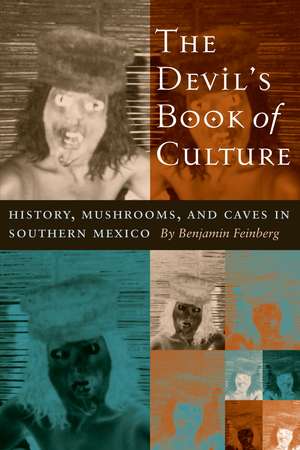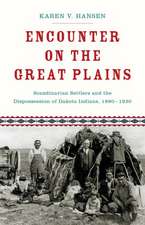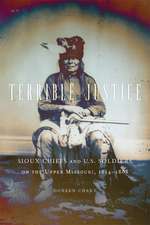The Devil's Book of Culture: History, Mushrooms, and Caves in Southern Mexico
Autor Benjamin Feinbergen Limba Engleză Paperback – dec 2003
In this highly original ethnography, Benjamin Feinberg investigates how different understandings of Mazatec identity and culture emerge through talk that circulates within and among various groups, including Mazatec-speaking businessmen, curers, peasants, intellectuals, anthropologists, bureaucrats, cavers, and mushroom-seeking tourists. Specifically, he traces how these groups express their sense of culture and identity through narratives about three nearby yet strange discursive "worlds"—the "magic world" of psychedelic mushrooms and shamanic practices, the underground world of caves and its associated folklore of supernatural beings and magical wealth, and the world of the past or the past/present relationship. Feinberg's research refutes the notion of a static Mazatec identity now changed by contact with the outside world, showing instead that identity forms at the intersection of multiple transnational discourses.
Preț: 232.67 lei
Nou
Puncte Express: 349
Preț estimativ în valută:
44.52€ • 46.58$ • 36.98£
44.52€ • 46.58$ • 36.98£
Carte tipărită la comandă
Livrare economică 03-17 aprilie
Preluare comenzi: 021 569.72.76
Specificații
ISBN-13: 9780292701908
ISBN-10: 029270190X
Pagini: 288
Ilustrații: 20 b&w photographs, 1 map, 1 chart
Dimensiuni: 152 x 229 x 15 mm
Greutate: 0.45 kg
Ediția:New.
Editura: University of Texas Press
Colecția University of Texas Press
ISBN-10: 029270190X
Pagini: 288
Ilustrații: 20 b&w photographs, 1 map, 1 chart
Dimensiuni: 152 x 229 x 15 mm
Greutate: 0.45 kg
Ediția:New.
Editura: University of Texas Press
Colecția University of Texas Press
Notă biografică
Benjamin Feinberg is Professor of Anthropology at Warren Wilson College in Asheville, North Carolina.
Cuprins
- Preface
- Acknowledgments
- 1. Introduction: A Toyota in Huautla
- 2. Historical and Geographical Overview: The Master Narrative of the Past
- 3. From Indians to Hillbillies: Explicit Stories about the Mazatec Past
- 4. "Like Rock, but Mazatec": Fiestas in Huautla
- 5. The Secret Past
- 6. "¿Quiere Hierba? ¿Quiere Hongo?" Mushrooms, Culture, Experts, and Drugs
- 7. The Underground World
- 8. Conclusion: The Devil's Book
- Notes
- Bibliography
Recenzii
The author's elegant prose, at times raw, and peppered with colorful vignettes exposing the many foibles of fieldwork, makes for pleasurable and engaging reading. Perhaps more importantly, Feinberg's work represents a significant theoretical contribution to the study of ethnic identity in Oaxaca, a topic of considerable anthropological narration. It demands a thorough reexamination of the very ways in which we study and write about indigenous "culture" by looking at how Mazatec identity is constructed through a host of intersecting metacultural discourses, including those of its ethnographers. While based on regionally specific ethnographic material, I highly recommend Feinberg's book not only to anthropologists, but also historians and others interested in critical theory and identity formation, as well as cultural and historical representation.
...Feinberg's insights are penetrating and he makes important contributions to theoretical critiques of the concept of culture.
Descriere
In this highly original ethnography, Benjamin Feinberg investigates how different understandings of Mazatec identity and culture emerge through talk that circulates within and among various groups, including Mazatec-speaking businessmen, curers, peasants,

















